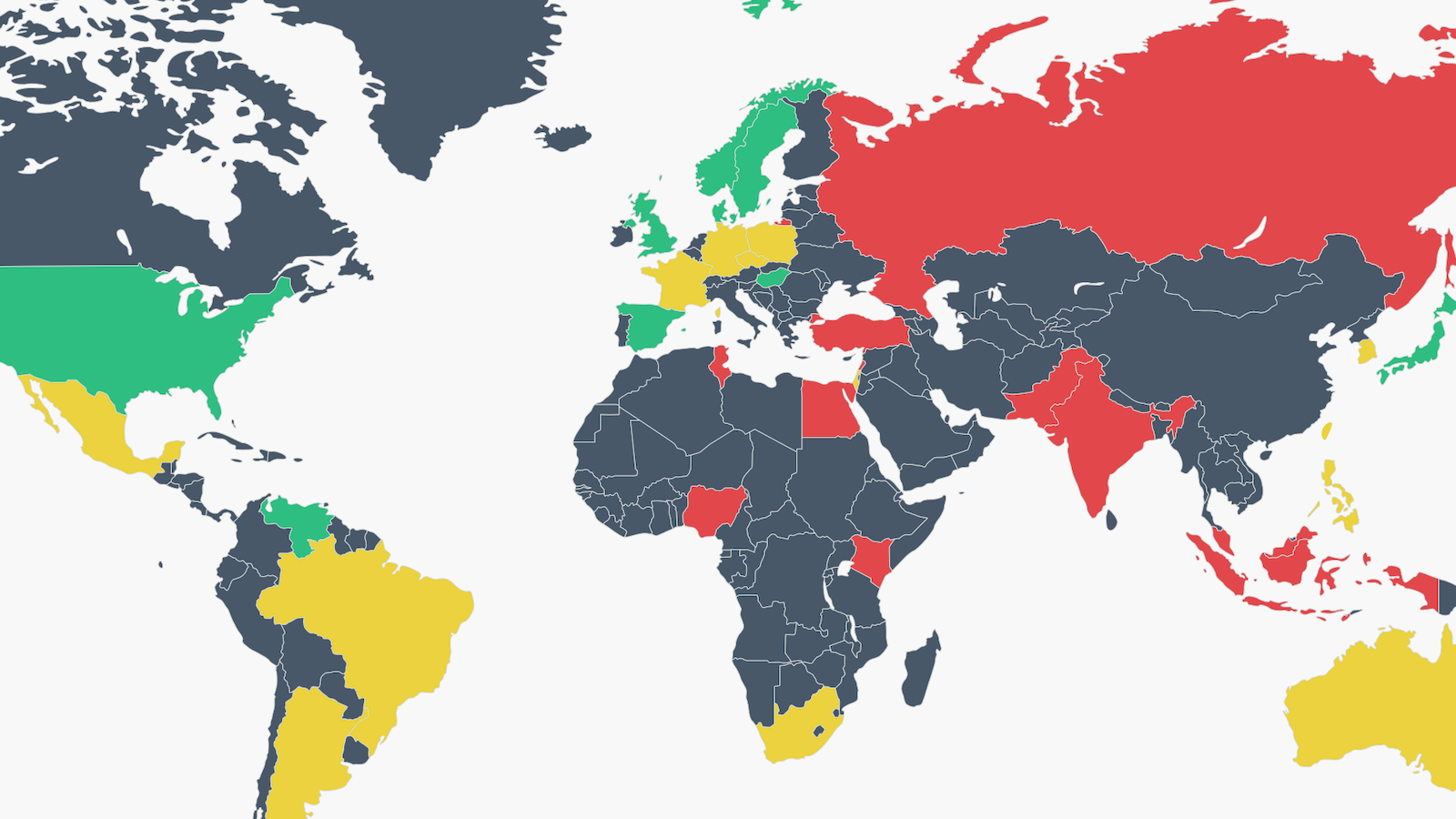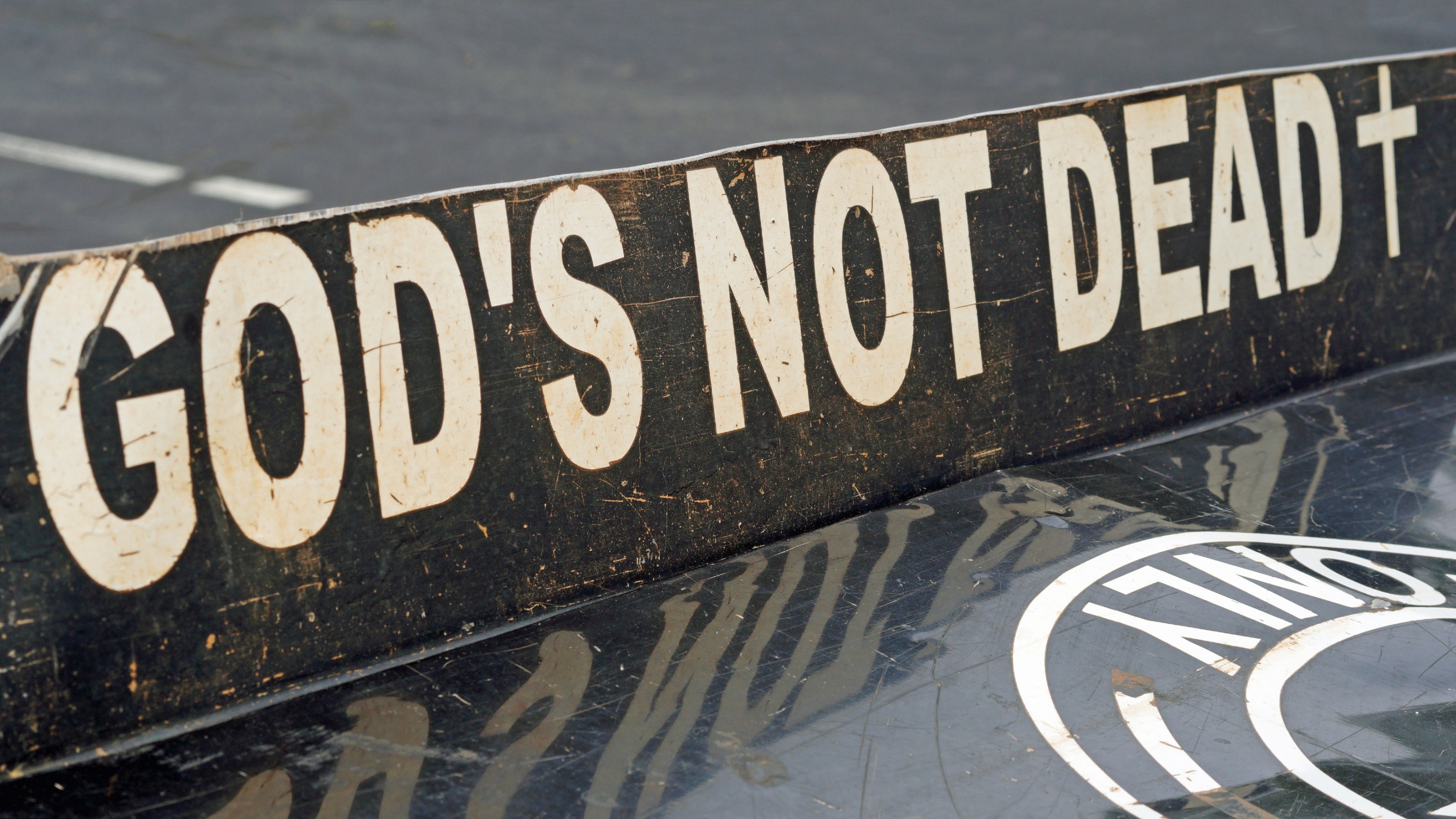Why free will is like whiskey

- In this book excerpt, Alfred Mele introduces us to the concepts of "straight" and "mixed" free will.
- Free will is like whiskey. Some like it straight; others like it mixed with ice. In this analogy, "deep openness" is the ice.
- Both forms of free will are worthy of consideration.
We’ll be seeing two different conceptions of free will again and again. A simple way to understand them is in terms of proposed sufficient conditions for doing something freely. We’ll treat free action as the more basic notion in terms of which free will is to be defined. Free will, as we’ll understand it, is just the ability to act freely. And keep in mind that deciding to do something is itself an action; it’s a momentary mental action of intention formation. Let’s start with freely deciding to do something. Here’s a proposal about that:
Proposal 1. If sane, unmanipulated people consciously make a reasonable decision to do something on the basis of good information and no one is pressuring them, they freely decide to do that thing.
Call the conception of free will at work in this proposal a Straight conception. The reason for this label will be revealed shortly. It’s important to keep in mind that Proposal 1 is a proposed sufficient condition for deciding freely. Proposal 1 doesn’t say, for example that you can’t make a free decision while being pressured by someone. Nor does it say that a decision has to be reasonable in order to be free, that all free decisions have to be based on good information, and so on. Proposal 1 is not framed in terms of what’s necessary for deciding freely. It’s a proposal about what is enough for a decision to be free.
What do we mean by a necessary condition for something? What’s a necessary condition for being a bachelor, for example? It’s a condition that an entity must satisfy in order to be a bachelor. Here’s one necessary condition. The entity must be unmarried. But is being unmarried a sufficient condition for being a bachelor? No. A sufficient condition for being a bachelor is a condition such that anything that satisfies it is a bachelor. The little boy who lives across the street from me is unmarried, but he doesn’t count as a bachelor. So being unmarried isn’t sufficient for being a bachelor. (By the way, my cell phone is unmarried too, and it’s not a bachelor.) Other necessary conditions for being a bachelor are being a person, being male, being of marriageable age, and never having been married. (I checked an online dictionary for that last condition.) Putting all the necessary conditions for being a bachelor together yields a sufficient condition for being a bachelor.
I should add that not every part of a sufficient condition for a particular person’s being a bachelor has to be a necessary condition for being a bachelor. My friend Juan is a fun-loving, twenty-five year-old man who enjoys dating and has never been married. That’s a sufficient condition for Juan’s being a bachelor. But not all of the condition’s components are necessary conditions for being a bachelor. A person doesn’t need to be twenty-five to be a bachelor. And the same goes for being fun-loving and enjoying dating.
Back to Proposal 1. Why does it count as a proposal about free will, even though the expression free will doesn’t appear in it? Because we’re assuming that free will is the ability to act freely and we’re understanding deciding to do something as a mental action. With this assumption in place, if a person decides freely, that person has free will—or at least had it when making the decision. Why? Because anyone who acts freely was able to act freely. And free will is precisely that ability—the ability to act freely.
Some people regard Proposal 1 as too feeble to take us all the way to free decisions. That is, they claim that satisfying Proposal 1 is not sufficient for deciding freely. What’s missing, they say, is a requirement that alternative decisions are open to the decision maker in a specific way that I will try to shed some light on now.
Sometimes you would have decided differently from the way you did if things had been a bit different. For example, if you had been in a slightly better mood, you might have decided to donate $20 to a worthy cause instead of just $10. But this isn’t enough for the kind of openness of options in decisionmaking that some people say is necessary for deciding freely—what we can call deep openness. What’s needed is that more than one option was open to you, given everything as it actually was at the time—your mood, all your thoughts and feelings, your brain, your environment, and, indeed, the entire universe and its entire history. Having been able to have made a different decision if things had been a bit different is one thing; having been able to have made a different decision without there being any prior difference at all is another thing—a more demanding or deeper thing. Hence the label deep openness.
Discussions of a conception of free will that requires deep openness for free decisionmaking can quickly get very technical. I’ll try to avoid technicality here. Yesterday, George’s friends invited him to join them on a karaoke outing. George doesn’t care much for karaoke, but he likes hanging out with his friends. After giving the matter some thought, he decided to accept their invitation. Now, imagine that time (and the whole universe, actually) could be rewound in something like the way you rewind a movie you are watching on your favorite media player. And imagine that after George makes his decision, time is rewound to a moment just before he decided to say yes. Everything is exactly the same as it was the first time through. But this time, what happens next—what happens when the “play” button is pressed—is that George decides to reject his friends’ invitation. This is a way to picture deep openness and the associated conception of having been able to have decided otherwise than the way you did. If George had deep openness when he made his decision, then if time could be rewound again and again for just a few moments and then played forward, he would make different decisions in some of the “replays.”
This brings us to the following proposal:
Proposal 2. If sane, unmanipulated people consciously make a reasonable decision to do something on the basis of good information, no one is pressuring them, and they were able to make an alternative reasonable decision, in a sense of able that requires deep openness, they freely decide to do that thing.
The conception of free will at work in Proposal 2 is what I’ll call a Mixed conception. I’ll have much more to say about it in subsequent chapters. Here, I’ll point out that Proposal 2 is understated insofar as it doesn’t actually say that deep openness is necessary for free decisionmaking. So there’s more to a Mixed conception than Proposal 2 identifies. A Mixed conception includes the idea that deep openness is necessary for free will.
Why do I call this conception Mixed? Because it mixes deep openness into the ingredients of the other conception I described. And why do I call the other conception Straight? Because it’s unmixed. Some people like their whiskey straight; others prefer it mixed with ice. We find something analogous in the sphere of free will. Deep openness is the ice.
My take on free will
As you will have noticed, this is not just a guide to free will—it’s an opinionated guide. So in addition to guiding you in a general way on the topic, I’ll present my own take on free will. There are many books you can read to explain free will to you, but this one introduces the topic while also presenting my view of it in particular. It’s a view I’ve developed over many years, and it’s a distinctive one. Maybe by the time you reach the end of this book, it will be your view, too. Or maybe—even better—you’ll go on from this introduction to work out an exciting view of your own.
There’s a longstanding debate in philosophy about whether free will is to be understood in a Straight way or in a more demanding way. I don’t take a stand one way or the other in that debate. I never have. This is unusual, to put it mildly, for a philosopher who has written as much about free will as I have. One thing I’ve tried to do is to develop both an attractive Straight conception of free will and an attractive Mixed conception of it. With those conceptions before us, we can ask such questions as the following:
Do people ever satisfy the conditions that a Straight view presents as sufficient for free will?
Are those conditions actually sufficient for free will? Or can a person satisfy those conditions and lack free will even so?
Do people ever satisfy the conditions that a Mixed view presents as sufficient for free will?
Are those conditions actually sufficient for free will? Or can a person satisfy those conditions and lack free will even so?
We’ll explore these questions, along with many others, in what lies ahead.
From Free Will: An Opinionated Guide by Alfred R. Mele. Copyright © 2022 by Oxford University Press. Published by Oxford University Press. All rights reserved.





